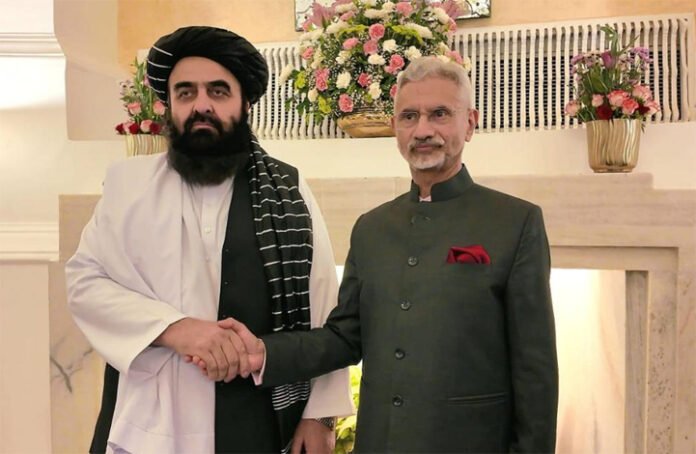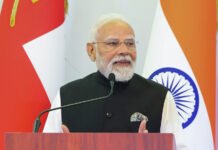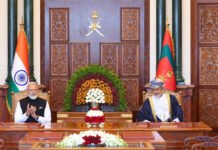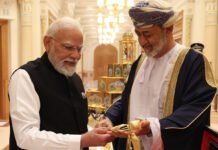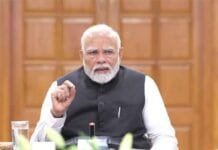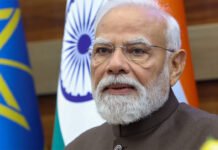Kabul, October 22, 2025 — India has officially upgraded its diplomatic mission in Kabul, transforming it from a “Technical Mission” into a full resident embassy. The move reflects India’s commitment to strengthening bilateral relations with Afghanistan and signals a broader diplomatic recalibration in South and West Asia.
“This upgrade demonstrates India’s steadfast engagement with Afghanistan and its people,” said External Affairs Minister Dr. S. Jaishankar. “Our presence will now be fully aligned with the responsibilities of a sovereign embassy, enabling closer political, economic, and cultural cooperation.”
⚖️ Significance of the Upgrade
The transition from a technical mission to a full-fledged embassy carries several implications:
Enhanced Diplomatic Engagement
India can now engage more robustly on bilateral issues, from security cooperation to infrastructure development.
It strengthens India’s voice in regional peace and stability initiatives.
Expanded Consular Services
Visa processing, trade facilitation, and citizen support services will now operate from a fully functional embassy.
Indian nationals and businesses in Afghanistan will benefit from streamlined consular services.
Strategic Regional Presence
The upgrade signals India’s long-term strategic commitment to Afghanistan amid complex regional dynamics.
It reflects India’s proactive role in South and West Asia diplomacy, balancing engagement with global partners.
“India is sending a clear message: we are committed to Afghanistan’s stability and development,” said Ambassador Vinay Kumar, newly appointed head of the Indian Embassy in Kabul.
🌍 Context & Regional Implications
India’s decision comes at a time of shifting geopolitics in South and West Asia. Analysts say the embassy upgrade:
Enhances India’s influence in regional security and trade dialogues
Provides a platform for bilateral development initiatives, including education, health, and infrastructure projects
Reinforces India’s strategic alignment in multilateral forums addressing Afghanistan’s stability
“This move is a calculated and timely diplomatic step, reinforcing India’s presence in a critical region,” said Dr. Rakesh Sood, former Indian diplomat and international relations expert.
The embassy will play a key role in coordinating with UN agencies, NGOs, and international donors engaged in Afghanistan’s reconstruction.
🏢 Infrastructure & Staffing
The upgraded embassy in Kabul will house:
Political and economic wings for deeper engagement with Afghan ministries
Cultural wing to promote Indian education, arts, and healthcare initiatives
Security and administrative divisions to ensure safe and efficient operation
“Staffing the embassy with experienced diplomats and local personnel ensures continuity and strengthens India-Afghanistan relations,” explained Ambassador Kumar.
💬 Official Statements & Public Reaction
Indian government officials emphasized the long-term vision behind the embassy upgrade:
“Afghanistan is a priority partner. Our upgraded mission will enhance cooperation in education, trade, and security, benefiting both nations,” stated MEA spokesperson Arindam Bagchi.
The international community has welcomed the move as a stabilizing factor in the region. Analysts note that this step signals India’s responsible engagement amid evolving security and economic challenges in Afghanistan.
🔮 Looking Ahead
The upgraded embassy will focus on:
Facilitating bilateral trade and investment opportunities
Supporting humanitarian aid and development projects
Strengthening security and counter-terrorism cooperation
Expanding cultural and educational exchanges
Experts say that India’s embassy in Kabul will now serve as a central hub for strategic diplomacy in South and West Asia, enhancing India’s role as a stabilizing actor.
“This is a milestone in India’s diplomatic strategy,” said Dr. Sood. “It underscores our commitment to regional stability, people-to-people ties, and proactive engagement in Afghanistan’s reconstruction.”
Conclusion:
India’s upgrade of its Kabul mission to a full resident embassy is more than a bureaucratic change—it is a strategic statement. By deepening diplomatic, economic, and cultural ties, India aims to foster stability, development, and long-term cooperation with Afghanistan, asserting its presence as a key player in the South and West Asian geopolitical landscape.

